This week’s SistahBiz Spotlight is Monique Madara, Founder of Rapport Marketing Research LLC, a boutique research firm in Las Vegas, Nevada. Rapport Marketing Research helps companies all over the world understand culture and “the why” behind what people watch, buy, and do. Her company’s mission is to uncover human truths that transform relationships between brands and consumers.
Being multi-racial herself, she lives and works at the intersection of cultures. She has provided strategic consumer insight to leading brands like Toyota, Facebook, AARP, United HealthCare, and many many more for the past 12 years.
In this month’s Sistahbiz spotlight interview, Monique took some time to give us insight into her world and business journey after 10 years of success. She definitely dropped some gems for our sistahpreneurs. Check it out below:
1. Advice for Black Women starting a new business?
Take a post-it note and a Sharpie and write these words:
“Is what you’re doing right now making you money?”
Then post it at your desk directly in your line of sight.
When I look back over the first year or two of the business, the large majority of what I invested time, money and effort into was not impacting my bottom line. It’s easy to avoid the hard work of business development (which I still hate to this day). It’s easy to spend weeks or months agonizing over the perfect language on your website, or attending expensive conferences, or re-organizing your home office. But the reality is that in consulting, success comes down to developing valuable, innovative solutions and building relationships. Period.
2. Morning Routine
When I’m at home, my morning routine typically consists of 30 minutes on my treadmill, and hour or so of “me” time. My hour varies based on my emotional and mental needs that day, but often includes pleasure reading, journaling, building my personal to-do list, or listening to a meditation, Ted Talk or other positive content. I may be reading up on the latest health news, or talking to my sister on the phone. Other days you may find me deep stretching while indulging my passion for history documentaries. The common denominator is that I’m alone, I have my coffee, and I’m doing things are deeply enjoyable and usually quite uplifting – no social media, no email, no housework.
When I’m on the road, all bets are off…and that’s ok. An essential trait for entrepreneurs is the ability to be flexible and adapt to your current environment.
3. Service Iterations
Our service offerings are perpetually under threat (and yet, also simultaneously enhanced by) technology innovation. We keep a close eye on the latest apps, platforms and software both in the research field, but also in other disciplines, to ensure we stay relevant and competitive. As consumers evolve, so do our clients’ needs, and we have to continually reinvent our methods and deliverables so they don’t end up on a shelf collecting dust. Our project timelines of 10 years ago (8-12 weeks) would be a joke today. Continuous innovation in how we recruit, collect data, analyze and share research results helps us provide real, actionable value to our client partners.
4. Startup Capital
I saved 8 months of living expenses before tendering my resignation at my prior employer. Many consultancies enjoy the benefit of fairly low startup costs, and I was able to self-fund our minimal operating costs until projects began coming in. At 4 years in, with the company’s growth, we began experiencing cash flow challenges. Because I established business checking and revolving credit immediately after founding, and maintained excellent personal credit, we were able to secure a business line of credit from our bank, which we maintain to this day.
5. Least Experience
Talent acquisition and management. I wish I could say I’ve cracked the code on this one, but the truth is, human resources professionals earn good salaries for a reason. As a solo-preneur, you may find the journey from 1 to 10 to be your most challenging undertaking. I’ve learned two things the hard way, through many hiring attempts and failures:
Excellence is almost never cheap. Hire an intern at intern rates, and you get intern quality. Hire the very best, proven talent you can afford, even if it means adjusting your own income. You’ll find their real contribution to your bottom line helps cover their salary.
Hire seasoned independent contractors. Not only are you supporting small business, but using 1099 vendors need less management, provide high quality services and can cost less than W2 employees over the long run.
6. Crossing cultural lines
Oh, I could never do this question justice in a single paragraph – this could be an entire weekend workshop in itself! But let me point to two areas where I see Black business owners consistently struggle: 1) external communication and 2) internal mindset.
1) It is vitally important to commit to communication that is:
- Timely and proactive. I can’t stress this enough…make your deadlines. Honor the commitments you’ve made and on the rare occasion you can’t, proactively communicate with a new delivery time. Provide ideas, documents and deliverables before being asked. Respond within 2-4 hours during business hours…even if only to acknowledge receipt.
- Positive and solution-oriented. Bring solutions, not problems, to the table. Seriously.
- Professional and polished. Slang, gossip, broken grammar and poor spelling will hurt your bottom line. Channel your inner Oprah/Michelle Obama in all professional communications. Leave clients and colleagues with no doubt that if they put you in front of a decision-maker, you’ll represent them well.
2) Finally, get crystal clear with yourself about your “greater goal.” Racism and exclusion is real in corporate America. And there are always days when even well-intentioned clients and colleagues will stun you with their ignorance and bias. I try to filter all my potential responses and actions through this “greater goal” lens: setting my ego aside for now, ultimately, will this action help or hinder me?
7. First big deal
We landed our first six-figure contract through an established client, an advertising agency who had given us several small projects that we executed like six-figure projects. I’ve found that all our large-scale projects come through existing relationships. I can’t tell you how many public and private RFPs we responded to where we had no relationship in place…but I can tell you how many we landed: ZERO.
Our growth has come directly from successfully churning out small projects for big clients and earning their trust. We did this through proactive communication and ideation, consistency in our operations from job to job, and a commitment to ethical practices.
8. One inspirational Message
I’d pass along a message that I was given on a flight. One lucky day, I was upgraded to first class where I sat next to a white male executive in his 60s. After sharing a bit about my business, he offered me a piece of advice that I’ll paraphrase here, essentially:
Success is very much like a hill. As long as you continue putting one foot in front of the other, you will rise to the next level, and the next…and the next. For those who stay in motion, success is quite simply inevitable. This simple thought has carried me through several failures and slow periods.
9. Relationships
I’ve touched on this previously, but in our line of work, relationships are quite literally EVERYTHING. How we care for our relationships with both clients and colleagues translates directly into repeat and new business. I’ve found our best business relationships have several things in common: respect, clear boundaries and balanced give-and-take. The relationship skills we find to be most important in our business are active listening, carefully managing expectations, and written follow-ups. In a business environment that is evolving with breathtaking speed, our commitment to thorough discussions and written follow-ups help us actually save time, avoid costly errors and frustration, and ultimately deliver better results.
10. Great failure
Nearly a decade ago, I landed an important project with a major automotive manufacturer. We had great success in the field, and I worked around the clock for two weeks to build a vibrant, colorful, polished PowerPoint to present at their N.A. headquarters. It was my first opportunity to present in person, and I wanted to knock their socks off.
After putting the finishing touches on, I quickly prepared an executive summary slide of 5 key bullets: black text on white background. You can guess what happened. At our 60-minute presentation, there was so much rich discussion around each of the 5 bullets, we never got into the actual presentation. All my colorful field photos, animations and video clips went unwatched. I essentially walked into this meeting with a single unformatted page, which obviously did not wow the client.
I learned several important lessons that day, but the one that guides my actions to this day is: Do the MOST important thing FIRST. Far too often, we procrastinate and ‘prepare’ by chasing small fish, and leaving ourselves too little time for the things that ultimately shape our brand in our client’s eyes. Now I build vibrant, engaging executive summaries that impress our clients… and I do it first.

